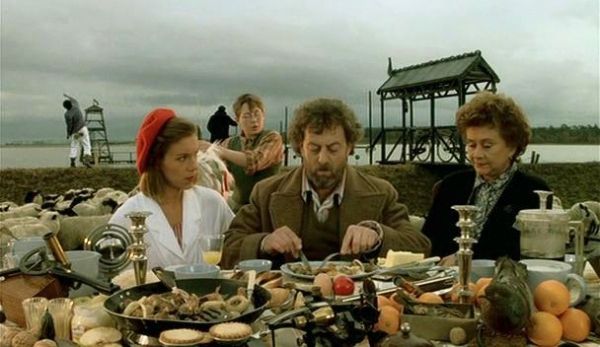Timeless Wisdom

The Daily Stoic for March 19th. “Timeless Wisdom”.
“For there are two rules to keep at the ready—that there is nothing good or bad outside my own reasoned choice, and that we shouldn’t try to lead events but to follow them.”
—EPICTETUS, DISCOURSES, 3.10.18
Today’s stoic has two main concepts, and I think it’s useful, in order to analyze Epictetus’ sentence, to address them separately.
There’s Nothing Good Or Bad Outside My Own Choice
As I mentioned in yesterday’s stoic, I still have problems to accept this teaching from Stoicism. While I truly believe that our attitude and point of view can greatly influence the way we see the world, and that we always have the power to change a situation with our actions or decisions, I think there are objectively good or bad situations.
Yes, sometimes we see things as good or bad -specially bad- due to a lack of empathy with other people.
However, if my son dies in a terrible car accident in front of my eyes, I can hardly see how Stoicism can prevent me from seeing this as something bad. Conversely, if I save the life of an old woman who’s drowning at the sea, that’s a good act, independently of who’s that person I just saved.
Today’s stoic passage mentions the example of Anthony de Mello. He was born in Bombay when it was still a British colony. Initially a dogmatic jesuit priest, he later discovered Buddhism and meditation, and his philosophy and writing changed considerably.
Where East Meets West Meets Timeless Wisdom
That was interesting for me. While never considering a buddhist myself, some years ago, I was a lot into buddhism. One weekend, fleeing from stress, I went on a spiritual retreat complete with a mindfulness class. In that class, the teacher asked us to “be present” and enjoy everything we do in a thoughtful way, acutely aware of what we were always doing.
He illustrated his words with the example of eating an apple. I couldn’t help but ask: “what if I am doing something I don’t like, like washing dishes”.
His answer surprised me. He told me that everything we do may be enjoyable or not, and that our mind is the only one capable of deciding it. Nothing was good or bad. So I might as well enjoy washing the dishes.
I think I need more help from fellow stoics to truly understand what I am missing here. I know that most events can be interpreted very differently by different people. However, I still think that there are acts that can be good or bad per se. That’s what Kant categorical imperative is all about after all:
“Act only according to that maxim whereby you can at the same time will that it should become a universal law.”
However, somehow this concept of not seeing things as good or bad is intriguing enough for me. Thus, I am going to try a little experiment. During a week, I am going to try to avoid seeing things as either bad or good. Only try to let them flow and act according to my own beliefs and values.
What would happen? I’ll let you know…

We Shouldn’t Try To Lead Events But To Follow Them
This second part of Epictetus sentence is also very confusing to me.
“… we shouldn’t try to lead events but to follow them”
I don’t know what exactly “leading” means in this sentence. But in my view, leading events is what makes you change things. Without context, it’s not clear what Epictetus wanted to express here, but I can’t certainly agree with the phrase as is.
And that showcases my problem with Stoicism right now. As much as I think most philosophers were just crazy guys with a very particular view of the world, I can agree with Kant. I can apply the categorical imperative universally and it’s still valid. I will always, in any possible situation, want people to be kind with me. So “treat others as you would like them to treat you” is a bullet-proof affirmation in my mind.
Unfortunately, I can’t say the same about Stoicism. In order for me to consider myself an “Stoic”, I would need Stoicism to be bullet-proof like Kant’s principle. I can take the best out of Stoicism, as I do with lots of other things, of course, but that takes it to a completely different level.
Conclusion
Today’s Daily Stoic showcases my biggest problem with Stoicism. The main gripe preventing me from considering myself an “Stoic” is here in the sentence from Epictetus.
First it’s hard for me to accept that we can remove the “good” or “bad” tag from any situation. Some of them seem objectively good or bad for me in any scenario. Secondly, I don’t like the idea of not leading events and limiting ourselves to following them.
I would be glad to hear from you, fellow stoics! What am I missing here? Please, help a lost sheep!




Comments ()